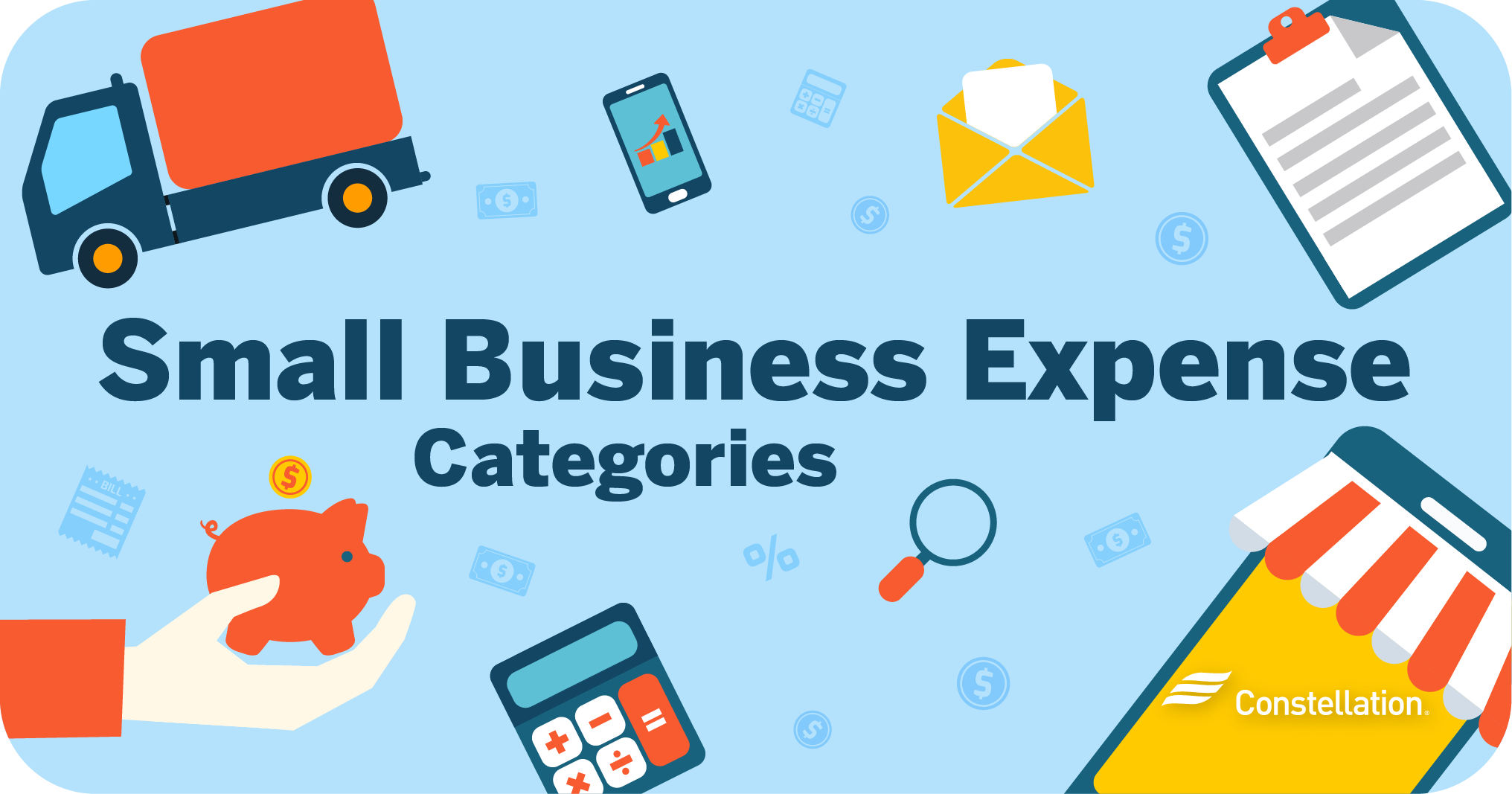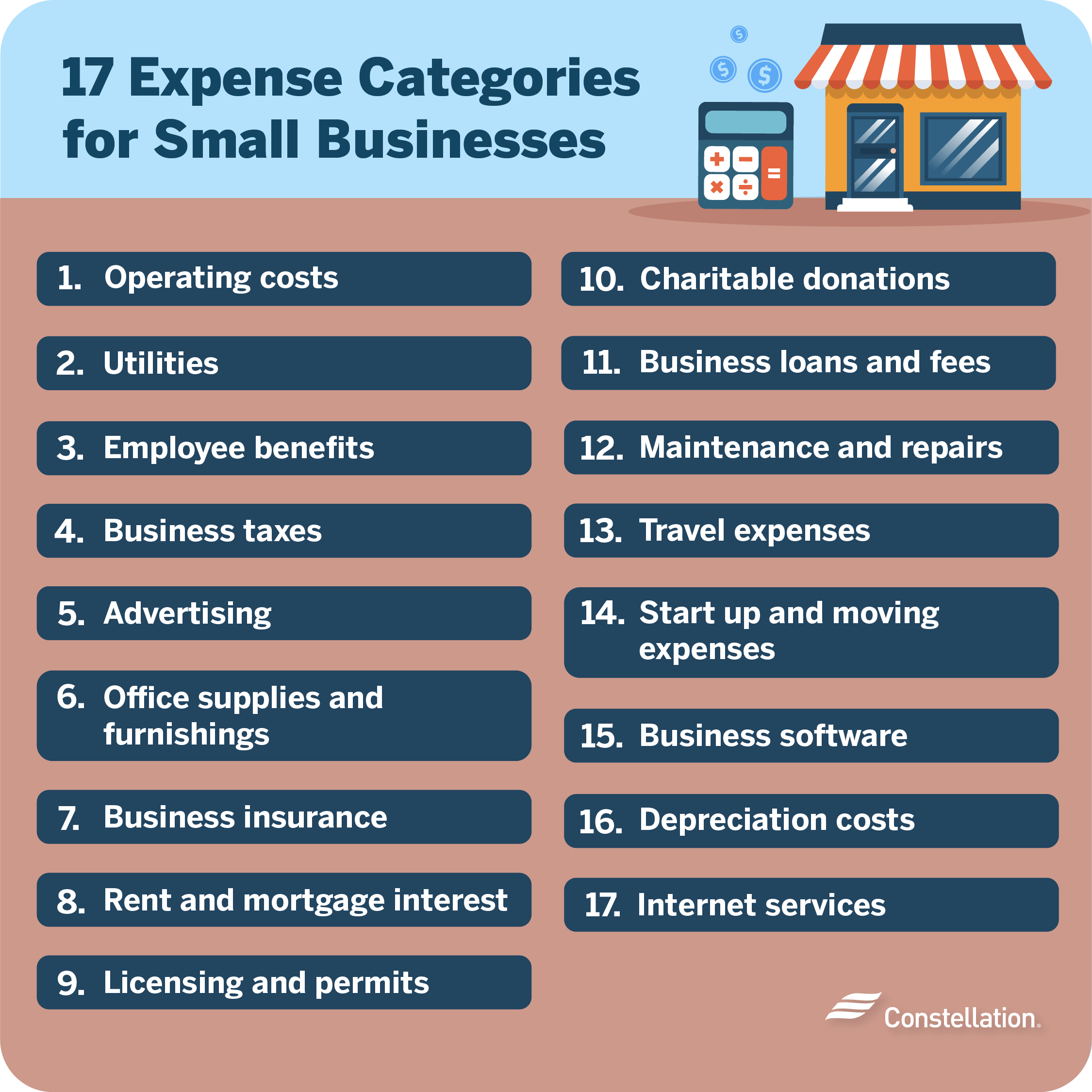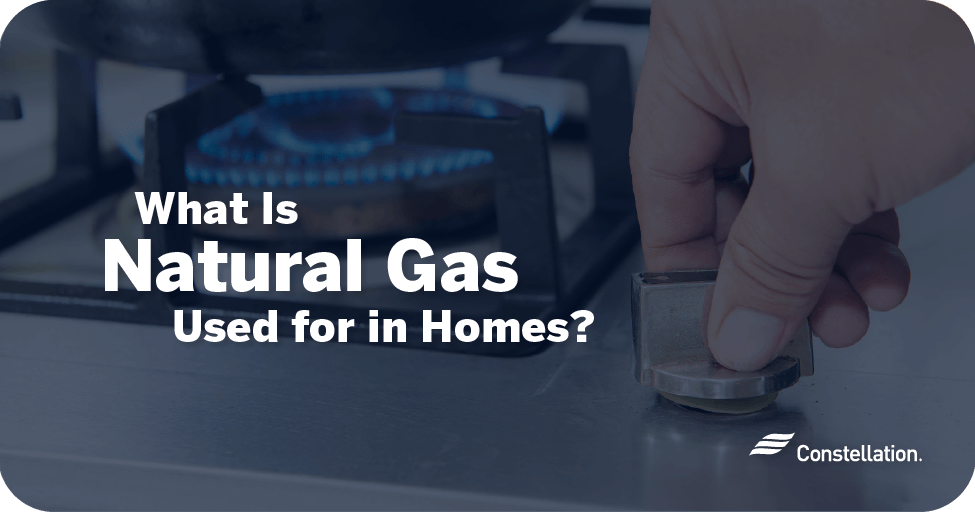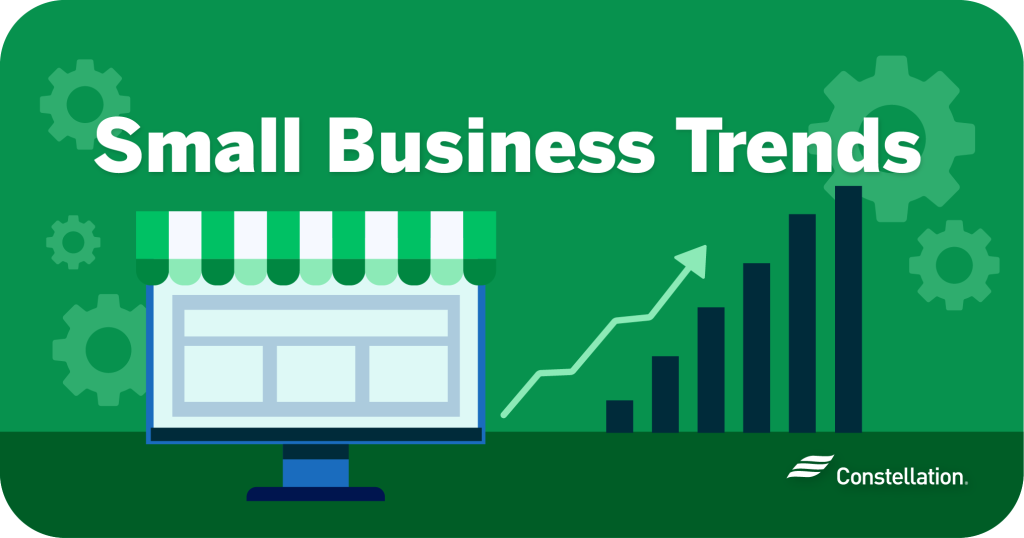
- Category:
Small Business Energy Savings - Published:
August 31, 2023
Small Business Expense Categories to Write Off
Knowing the small business expense categories and what you can and cannot deduct will ensure your business pays the right amount of tax on your revenue, while avoiding over-payment.
As part of running your business, you have to shell out money to pay for what you need to operate. The IRS defines business expenses as outlays that are “ordinary and necessary” for businesses in your industry to operate. These include overhead, cost of goods sold, capital investments and some personal expenses made for your business.
Jump to Section:
- What does the IRS consider to be a business expense?
- What are the IRS guidelines for business expense receipts?
- 17 expense categories small businesses can write off
- Categorize your small business expenses
What does the IRS consider to be a business expense?
It takes money to make money, spending that makes it onto the typical small business expense list. You can deduct these expenses from your revenue to cut your corporate taxes. This guide will give you a good overview of IRS business categories of expenses.
Why should you categorize small business expenses?
Among the benefits of categorizing your small business expenses is that you can better track what you can deduct from the revenue your business makes. Knowing the business tax expense categories for your company helps you identify expenses so you don’t miss anything and take full advantage of deductions at tax time. Reducing your taxable revenue may put your business in a lower, more favorable tax bracket.
What are the IRS guidelines for business expense receipts?
In most cases, you need a receipt that documents the when, where, and how much of each individual expense. It is a good habit to get receipts, enter them into your accounting system and file them, also keeping a digital copy.
What deductions can you claim without a receipt?
You don’t always need a receipt to take a deduction. Be ready to document these expenses with bills and bank statements.
- Home office expenses
- Cell phone expenses
- Vehicle expenses
- Self employment taxes
- Retirement plan contributions
- Travel expenses under $75
- Charitable donations under $250
- Utilities
- Certain employee benefits
17 expense categories small businesses can write off

What follows is a general introduction on IRS business categories for expenses. The topics can be complex and you may need professional guidance. To get you started, here are the most common outlays for each expense category.
1. Operating costs
The costs for running your business include variable costs that change based on volume, such as the cost of goods sold. Fixed costs don’t fluctuate and include things like rent, administration, payroll, insurance, utilities, the cost to purchase equipment and the cost of research and development. You can deduct 100% of these expenses in the year you incur them, but that isn’t the case for capital expenses.
While deducting expenses lessens their sting, reducing small business operating costs will have a big impact on your bottom line. Do all you can to improve business efficiency, then look at these business expense categories and see which ones apply to your company.
2. Utilities
The cost of electricity, gas, water, and other necessary utilities are 100% deductible. The only difference to watch out for is if you run a business from your home. You can only deduct the portion directly related to your business operations, not your residence. This is a good time to look into trimming expenses with summer expense savings and doing what you can to lower your small business utility bills.
3. Employee benefits
Besides paying employees, you may offer benefits like various kinds of insurance, dependent care assistance, memberships and publications, continuing education, tools and uniforms, student loan assistance, retirement plans and more. In many cases, these expenses are 100% deductible.
4. Business taxes
You can generally write off 100% of the state, local, and federal taxes and fees your business pays every year, but not penalties.
5. Advertising
The money you spend to attract new business is a legitimate marketing expense. You might spend on a website, on advertising flyers, or even getting your name on the local Little League uniform. These business-building expenses are 100% deductible.
6. Office supplies and furnishing
Office supplies are generally 100% deductible. You can trim these expenses by going green. Be careful not to include something like a laptop as an office supply item. That expense is a capital expense. The same goes for furnishings like desks, chairs, filing cabinets, and similar items. You’ll have to depreciate those over several years.
7. Insurance
The money you pay for most kinds of business insurance, like liability insurance, property insurance, business continuity insurance, key executive insurance and dozens of others are 100% deductible.
8. Rent and mortgage interest
Rent for your place of business or the interest you pay on the mortgage on business property are deductible. You can deduct 100% of the amount that is less than 30% of your businesses adjusted taxable income.
9. Licensing and permits
Many businesses need to be licensed or must get specific permits to operate. These expenses are 100% deductible.
10. Charitable donations
Don’t forget to add charities to your small business expense list. Your business might donate to the Red Cross, a local soup kitchen, or industry-specific non-profit. You can deduct up to 60% of your business’s adjusted gross income in most cases.
11. Business loans and fees
Interest on business loans and fees can be written off as an expense, however you may need to prove that they are legitimate. Examples include loans for equipment, loans to finance inventory and credit lines. You should be ready to provide loan documents that specify the lender, the amount borrowed, the interest rate, the term, and the rate at which you need to pay the loan back. Handshake loans between friends will risk an audit. You can deduct 100% of the amount that is less than 30% of your businesses adjusted taxable income.
12. Maintenance and repairs
To keep your business running, you will need to perform maintenance and repair office devices, machinery, appliances, and HVAC systems. Cleaning counts in the maintenance category for many businesses. Reducing small business cleaning costs is not difficult. In any case, these are 100% deductible.
13. Travel
Traveling to meet with customers and perform work on customer sites is 100% deductible, with one exception. Flights, hotels, mileage, parking, and similar expenses are a full write-off. The meals you and your employees eat, however, are only 50% deductible.
14. Start up and moving expenses
Certain less common expenses are deductible within reason. If your business has to move, the costs associated with it are 100% deductible. Start-up costs are also deductible as a one time expense. Be sure not to include capital investments that must be depreciated into these categories of business expenses.
15. Software
This is one of the trickier business tax expense categories. If you buy certain kinds of non-customized off-the-shelf software, you can deduct the whole amount as an expense in the year you buy it. If you customize the software, it is a capital expense and must be depreciated over the years of its useful life. If the software is bundled with other software, you will likely need to depreciate it. In cases where you pay for software as a service (SaaS), you can deduct the annual license fee you pay every year.
16. Depreciation costs
Deducting expenses for capital investments is a highly complex topic. Different capital investments depreciate at different rates and you can use different methods. You may be able to deduct expenses for a computer over five years, but might need to depreciate an HVAC system for 15 or more years. Professional advice is recommended.
17. Internet services
Internet services and other communications often bundled with this service are 100% deductible every year. If you buy internet when you or your employees travel, that is also deductible.
Categorize you small business expenses
With a good understanding of business expense categories, you are taking the right steps to ensure your business pays its fair share of taxes, yet doesn’t make the mistake of paying too much.
Don’t stop here with this review of IRS business tax categories. Learn how the rules apply to your small business so that you categorize your small business expenses accurately. Take steps to reduce your small business expenses, while you are at it. You can improve your small business efficiency in dozens of ways without too much effort. You will slash expenses, save on taxes and limit the risk of the aggravation of an audit.




